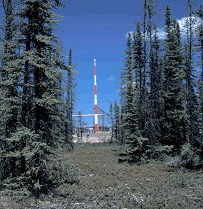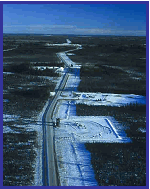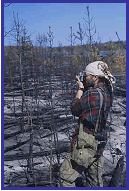Boyan Tracz
Graduate StudentBackground:
Woodland caribou tend to avoid the infrastructure related to petroleum exploration, potentially losing functional habitat. The avoidance effects that woodland caribou display may be compounded further if they select areas of low development for their home ranges. If woodland caribou avoid industrial development and compress their home ranges, the spatial segregation strategy they utilize to avoid predation may be negated, and exposure to lower quality habitat is a possibility. Alternatively, woodland caribou may expand home ranges in order to compensate for lost or low quality forage, bedding sites, or to maintain the ability to avoid predators. However, some studies on barren-ground caribou have also shown habituation to industrial features and activities.

Project:
In my Masters thesis I am examining if an increase of the industrial footprint in northeastern Alberta causes woodland caribou to change the size and location of their home ranges, and causes a change in caribou's selection of habitat. To answer these questions, I have GPS and VHF collar data for caribou from 1991-2000, and have Alberta Energy and Utilities Board data to track industrial development over the same time period. My research will indicate if areas considered caribou habitat are avoided on a large scale, or if caribou remain in their previous ranges regardless of increased industrial activity. Results from this study can then be included in cumulative effects models for improved woodland caribou management.

Bio:
I graduated from the University of Manitoba with an Honours in Ecology and
immediately afterwards ran about as a research assistant for several M.Sc. and
Ph.D projects. Later, time with a Conservation District in central Manitoba
provided me a life apart from my umbilical attachment to academia, and allowed
intimate experience with previously foreign viewpoints. This fostered an interest
in me to explore perspectives – a personal stakeholder analysis of sorts
I suppose. As a result, I threw myself into work for public companies in British
Columbia, political research in Ottawa, and as a legislative intern in South
Africa. After navel-gazing abroad, and upon my return to renewed runnings in
the bush in Canada, I made a decision to start my Masters - but with the caveat
that I combine biology and human interests, as I can no longer separate the
two. Now more than ever I see the union is a tenuous one, and that I still have
much to learn of the relationship.

The obligatory “interests and hobbies?” Many, but a new love of teaching and a renewed passion for capturing moments via my old beaten Nikons seem most prominent… today.
|
Last Modified:2003-11-26 |